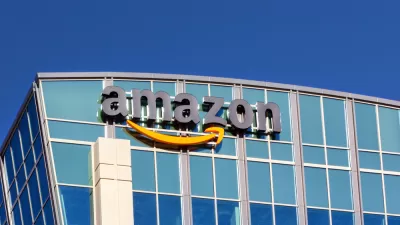A new bill proposing major cuts to the EPA could rob cities across the country of a specialized set of programs created to boost economic well-being.
Lost amidst the excitement over the federal transportation bill agreement, late last month the House Appropriations Committee approved the funding bill for the 2013 fiscal year, which covers funding for the Department of the Interior and the Environmental Protection Agency. Ben Adler exposes the bill's attacks on funding for the EPA, which would see its overall budget cut by 17%. More importantly, the EPA's Office of Smart Growth, is at risk of being completely defunded. This program works with economically vulnerable communities to generate and sustain "economic growth and efficiency - in theory, something Republicans should be amenable to supporting," writes Adler.
"The grants enable communities to initiate projects that wind up saving taxpayer money and preserving natural resources/the environment, and have been shown to play a role in developing the kind of great smart growth neighborhoods that a boon to local economies and health," states Tom Madrecki of Smart Growth America.
Adler describes this major blow as part of a larger attack on President Obama's Partnership for Sustainable Communities, of which the EPA is a partner. With smart growth funding on the chopping block, America's cities may lose a major tool for helping to improve their economic and physical well-being.
FULL STORY: Don’t Kill the Office of Smart Growth

Maui's Vacation Rental Debate Turns Ugly
Verbal attacks, misinformation campaigns and fistfights plague a high-stakes debate to convert thousands of vacation rentals into long-term housing.

Planetizen Federal Action Tracker
A weekly monitor of how Trump’s orders and actions are impacting planners and planning in America.

San Francisco Suspends Traffic Calming Amidst Record Deaths
Citing “a challenging fiscal landscape,” the city will cease the program on the heels of 42 traffic deaths, including 24 pedestrians.

Defunct Pittsburgh Power Plant to Become Residential Tower
A decommissioned steam heat plant will be redeveloped into almost 100 affordable housing units.

Trump Prompts Restructuring of Transportation Research Board in “Unprecedented Overreach”
The TRB has eliminated more than half of its committees including those focused on climate, equity, and cities.

Amtrak Rolls Out New Orleans to Alabama “Mardi Gras” Train
The new service will operate morning and evening departures between Mobile and New Orleans.
Urban Design for Planners 1: Software Tools
This six-course series explores essential urban design concepts using open source software and equips planners with the tools they need to participate fully in the urban design process.
Planning for Universal Design
Learn the tools for implementing Universal Design in planning regulations.
Heyer Gruel & Associates PA
JM Goldson LLC
Custer County Colorado
City of Camden Redevelopment Agency
City of Astoria
Transportation Research & Education Center (TREC) at Portland State University
Jefferson Parish Government
Camden Redevelopment Agency
City of Claremont



























